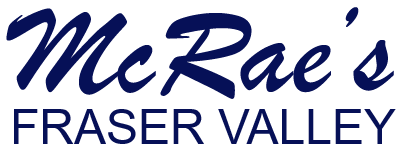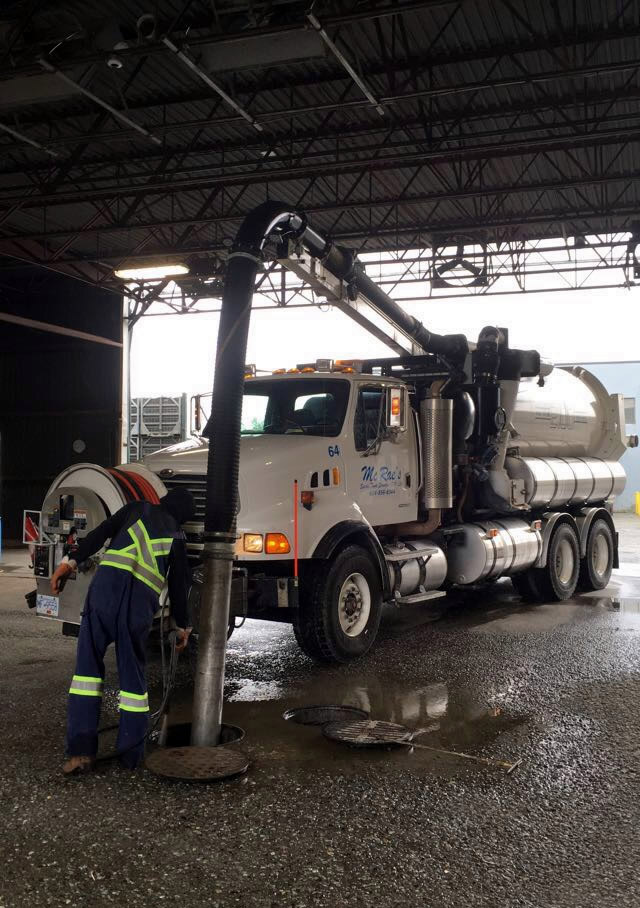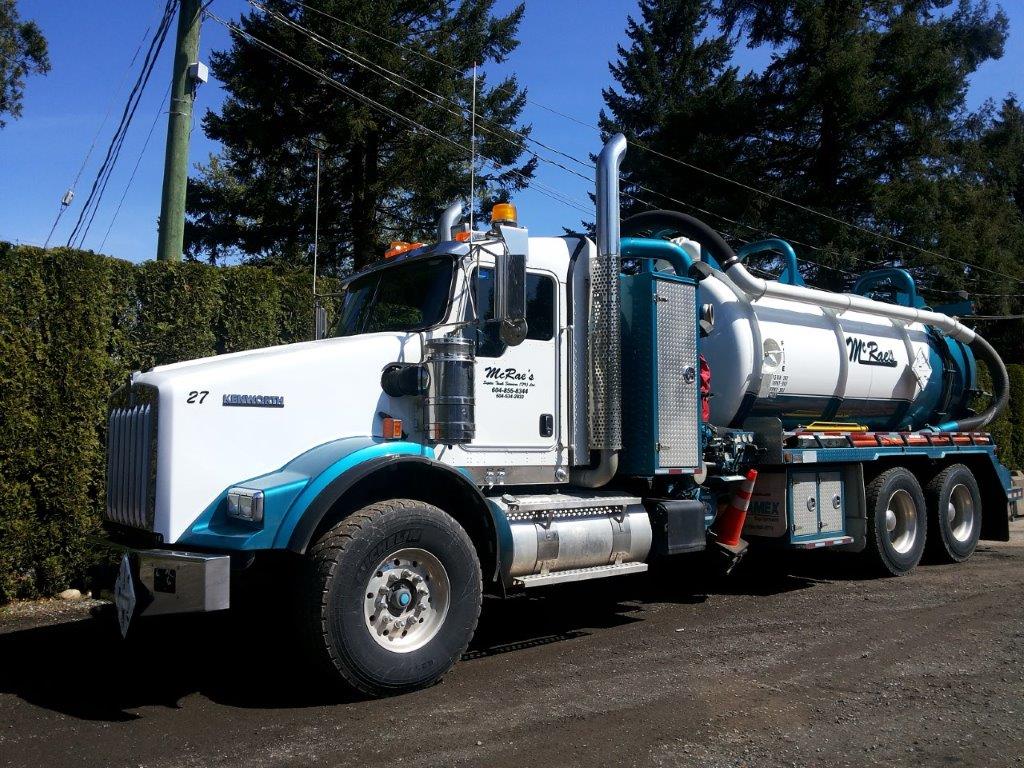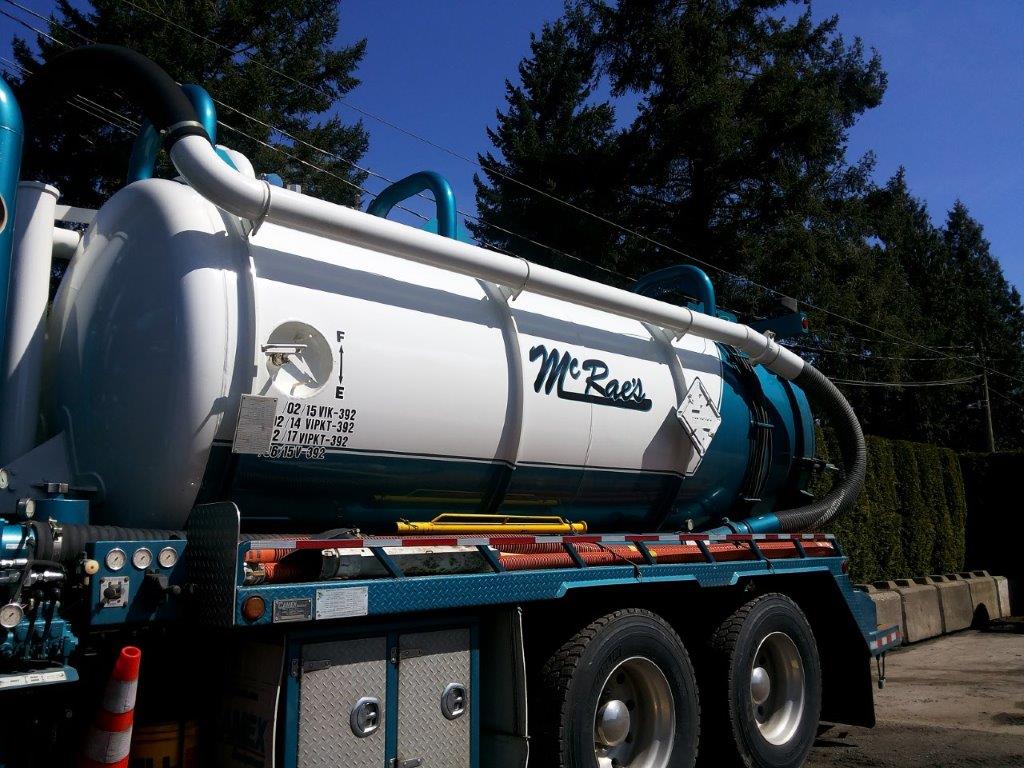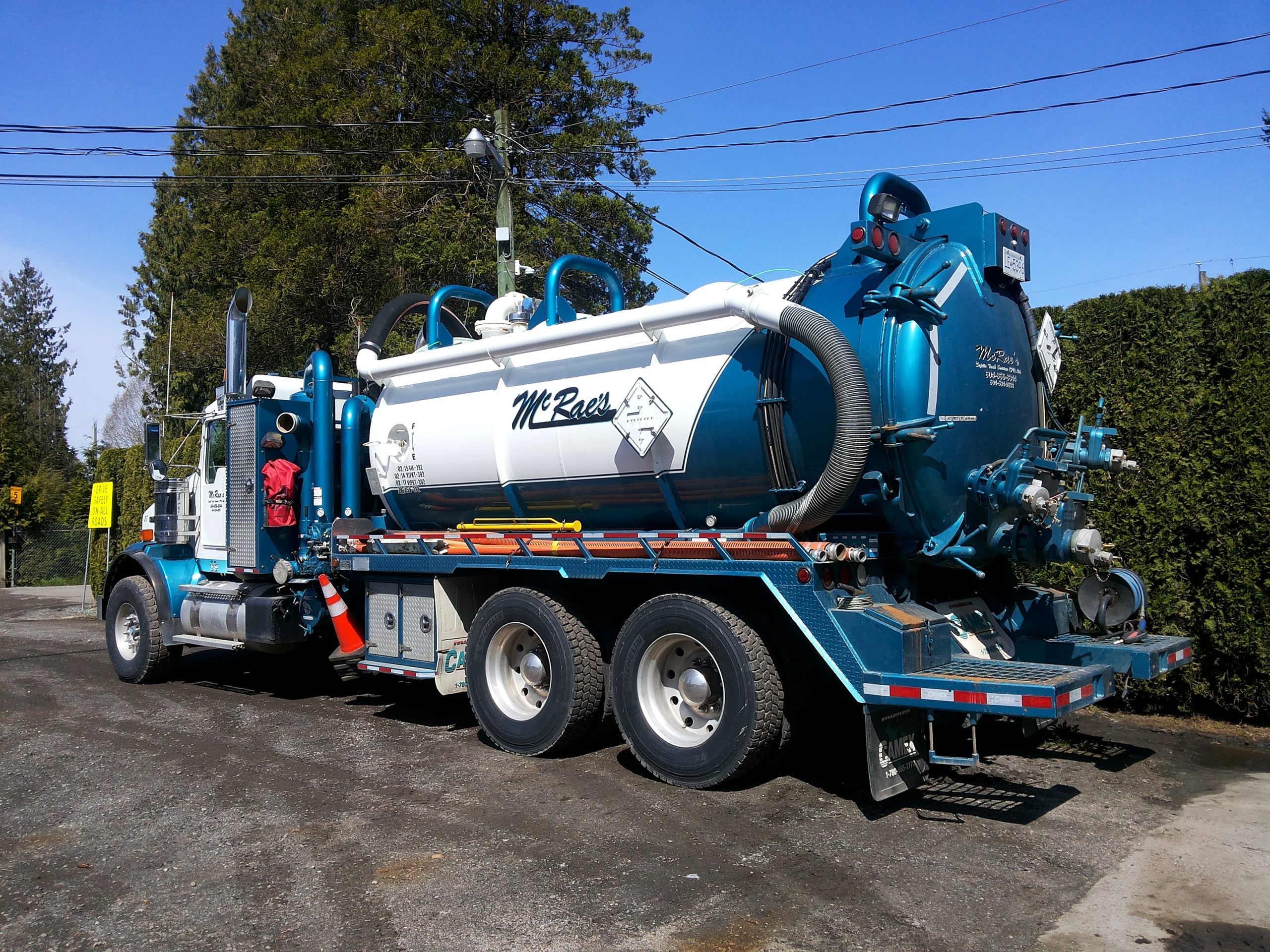Did you know Metro Vancouver spends at least least $2.7 million annually to unplug sewers clogged with fats, grease and oils? This $2 million + cost does not even include the damage to property caused by sewer overflow or back up. To combat this growing expense the GVRD instituted bylaw regulations for commercial kitchens to install and maintain proper grease interceptors on its waste water discharge plumbing.
Like plaque on arteries, grease and other substances can collect on the walls of sewer pipes, eventually leading to impassable plumbing, or worse, sewer back up. Pouring these substances down a drain may not incur immediate damage, but the situation becomes a clogged line waiting to happen.
What is a grease interceptor?
Essentially, it is a tank connected between a sink and a sewer line to collect unwanted fats or oils and operates in a similar fashion to a septic system. Water containing grease enters the tank where the fats or oils separate from the water. After separation, the remaining water is discharged through the sewer line. Periodically, the grease must be mechanically pumped out of the interceptor or it will overflow.
Specific Regulations of the Bylaw
- The bylaw only requires an interceptor for food sector establishments, such as restaurants, hotels and catering businesses;
- Appliances connected to a drain containing wastewater, such as dishwashers, self cleaning range hoods, garbage compactors and disposals must be connected to the grease interceptor;
- Toilets, showers and sinks used for hand washing should not be connected to the interceptor;
- It must be able to handle enough grease so that the water discharged from the interceptor has a concentration of oils or grease less than 300 mg per litre;
- The interceptor must be cleaned or pumped the sooner of every 90 days, or whenever the depth of grease or oils is greater than twenty five percent of the water;
- Chemicals used to liquefy grease or fats cannot be poured into the drain leading to the interceptor;
- The interceptor in an area sufficiently open to permit inspections and maintenance;
- There must be an access opening in the discharge pipe for testing purposes;
- Records of each inspection and periodic maintenance must be kept by the owner or operator. Records are to be retained for two years from the date of each inspection or maintenance
The Vancouver Sewage Control Manager is permitted to perform periodic inspections of interceptors as well as all sewage systems and drains in which grease or oil is present. Establishments not in compliance with the bylaws are subject to a fine of $2000 and up to $10000. In addition a Water sampling fee and re-inspection fee may be required.
Metro Vancouver has published the bylaw as well as a brochure and other information regarding the installation and usage of grease interceptors. The information can be found here. The Sewage Control Manager does not pump or clean grease interceptors.
If you are in need of a company specializing in cleaning and collecting grease interceptor wastes call McRae’s Septic Tank. We can put your business on a computerized schedule to ensure you are meeting all the bylaw requirements. Give us a call for your free Drain & Catch Basin Cleaning quote in Langley, Surrey, Abbotsford, Coquitlam, Port Coquitlam, Maple Ridge, Chilliwack, Fraser Valley and Metro Vancouver!
